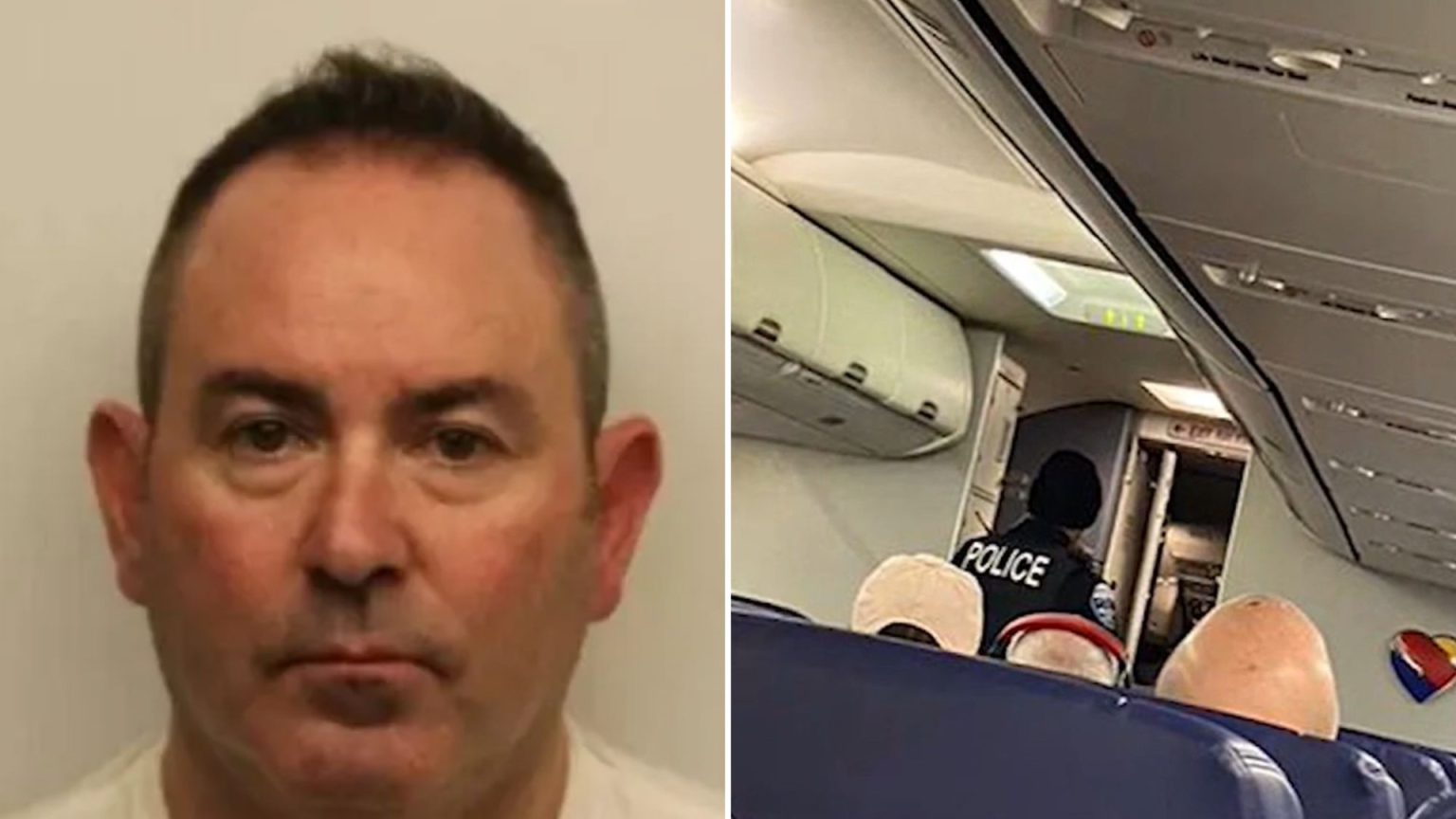Incident Summary and Airline Response:
On a seemingly ordinary morning, a Southwest Airlines pilot, David Alsop, 52, was dramatically apprehended at the Savannah/Hilton Head International Airport in Georgia, just moments before the scheduled departure of Flight 3772 to Chicago, Illinois. The incident, which unfolded on July 27, 2024, sent shockwaves through the aviation community and left passengers stranded for several hours. Alsop, a seasoned pilot with a history in the US Air Force and over 18 years of experience with Southwest Airlines, was suspected of being intoxicated while preparing to operate the aircraft. Law enforcement swiftly intervened, removing Alsop from the cockpit and placing him under arrest on charges of driving under the influence.
Southwest Airlines promptly addressed the situation, confirming their awareness of the incident and announcing Alsop’s removal from duty. Emphasizing their unwavering commitment to passenger and employee safety, the airline offered apologies for the disruption caused to travelers’ plans. Passengers on the grounded flight were accommodated on alternative flights to minimize the inconvenience. The airline initiated an internal investigation into the matter, assuring the public that the safety of their operations remained their paramount concern.
Legal Implications and Precedents:
The incident highlights the strict regulations governing alcohol consumption among pilots. Federal Aviation Administration (FAA) regulations prohibit pilots from operating an aircraft with a blood alcohol content (BAC) of 0.04 or higher. This limit is significantly lower than the legal limit for driving a motor vehicle, reflecting the heightened responsibility and potential consequences associated with operating an aircraft. Violations of this regulation can lead to severe repercussions, including the revocation of a pilot’s license and potential criminal charges.
This incident, while alarming, is not entirely unprecedented. The aviation industry has witnessed other instances of pilots attempting to fly under the influence, underscoring the ongoing need for vigilance and robust safety protocols. In a notable case from 2023, a Delta Airlines pilot was found to be two-and-a-half times over the legal limit before a transatlantic flight, putting the lives of hundreds of passengers at risk. Another incident involved Lawrence Russell Jr., a 63-year-old pilot who was jailed for 10 months for attempting to fly a Boeing 767 from Edinburgh to New York while intoxicated.
The Case of Lawrence Russell Jr.: A Comparative Example:
The case of Lawrence Russell Jr. provides a stark illustration of the potential consequences for pilots found in violation of alcohol regulations. Russell was apprehended at Edinburgh Airport in June 2023 after security staff discovered two bottles of Jägermeister in his luggage, one of which was half-empty. Russell admitted to consuming the alcohol and subsequently failed a breathalyzer test. Further blood tests revealed a BAC significantly exceeding the legal limit. Russell pleaded guilty to reporting for duty while impaired by alcohol and was sentenced to 10 months in prison.
This case, like that of David Alsop, highlights the seriousness with which authorities treat alcohol-related offenses in aviation. The potential for catastrophic consequences underscores the importance of strict adherence to regulations and the need for proactive measures to prevent intoxicated individuals from operating aircraft.
The Importance of Pilot Sobriety and Passenger Safety:
The incidents involving David Alsop and Lawrence Russell Jr. serve as stark reminders of the critical importance of pilot sobriety in ensuring passenger safety. The responsibility entrusted to pilots demands unwavering vigilance and adherence to the highest safety standards. The potential consequences of impaired judgment while operating an aircraft are immense, putting the lives of passengers and crew at grave risk.
The aviation industry maintains rigorous protocols to address the issue of pilot intoxication, including pre-flight screenings and random alcohol testing. These measures aim to deter pilots from consuming alcohol before duty and to identify individuals who may pose a safety risk. However, the incidents discussed above demonstrate that despite these measures, instances of pilot intoxication continue to occur, highlighting the need for ongoing vigilance and continuous improvement of safety protocols.
Long-Term Implications and Industry Response:
The incident involving David Alsop is likely to prompt renewed scrutiny of pilot alcohol regulations and enforcement procedures. The aviation industry and regulatory bodies will likely examine existing protocols and explore potential enhancements to further mitigate the risk of intoxicated pilots operating aircraft. Increased awareness and education campaigns may also be implemented to reinforce the importance of pilot sobriety and the potential consequences of violating alcohol regulations.
The incident also underscores the critical role of airport security personnel and airline staff in identifying and reporting potential safety concerns. Their vigilance is paramount in preventing intoxicated individuals from gaining access to aircraft and ensuring the safety of all passengers. The aviation industry relies on a multi-layered approach to safety, and the proactive actions of individuals at all levels are essential to maintaining the highest standards. The prompt response by Southwest Airlines in removing Alsop from duty demonstrates the industry’s commitment to prioritizing safety and taking decisive action when necessary.




